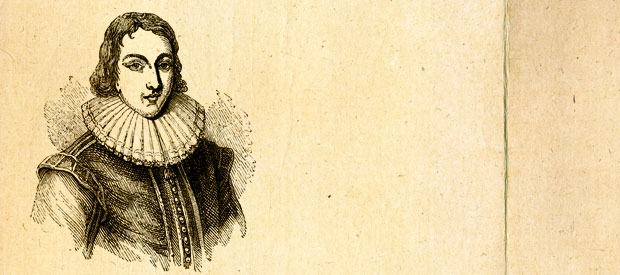There’s a reason some books fall under the category “assigned reading:” the pages drag on endlessly, nothing makes sense, and on occasion, they’re just plain boring. As Woody Allen sardonically advises in Annie Hall, “Just don’t take any class where you have to readBeowulf.”

At Seaver College, however, there are classes in which students have to read Beowulf, as well as the works of intimidating authors like Plato, Nietzsche, Homer, Dostoevsky, Augustine, and Freud. Students engage ideas and join in conversation about books that are comic, tragic, profound, challenging, and unsettling. The texts change from assigned to exciting as words stimulate the mind, inflame the heart, and stir the soul.
Read on to see how three professors in Seaver College’s Great Books Colloquium expound on the classics and recommend a few of their favorites.
On Great Books:
DON MARSHALL, Fletcher Jones Chair of Great Books:
Don Marshall
“How should I live my life?” “What kind of person do I want to become?” “Does the world have some ultimate, spiritual meaning, or is it simply a product of blind, mechanical forces?” “Is there a God who loves and cares for me or are human beings abandoned to their fate?” Asking questions like these and seeking answers is central to what makes us human. What we call “great books” are the records of other human beings posing these questions and responding so richly and thoughtfully that they become our best resources for our own thinking. Such books have proven their value in the ongoing conversation of humankind generation after generation, not because they do our thinking for us, but because they provoke us to the best thinking of which we are capable as we try to make sense out of the most fundamental issues: justice, truth, beauty, love, and faith.
FRANK NOVAK, professor of English:
Frank Novak
A great book endures. It is transcendent; it can be read and reread, offering new discoveries with each reading; it challenges and questions; it occasions reflection and debate among thinking persons. I tell my students that a great book is like a Mozart opera or a Beethoven symphony: one can experience it repeatedly, almost endlessly, with profit and delight.
MICHAEL DITMORE, professor of English:
Michael Ditmore
I tend to adhere to Mortimer Adler’s six criteria, essentially: A great book should be challenging but accessible to anyone willing to put intellectual effort into it. It should be complex and engaging enough to be discussible. It must be re-readable; one of my favorite quotations is from Vladimir Nabokov: “Curiously enough, you cannot read a book; you can only reread it.” I’d add “reread and reread.” It should be popular and influential, and always have a contemporary aspect and edge. And it is most important to stress that a great book is NOT necessarily “literary.” Euclid’s Elements is undeniably a great book, although it is not at all pleasurable reading in the way that Homer’s Iliad and Tolstoy’sWar and Peace are. Finally, a great book should touch deeply, but not necessarily comfortably or correctly, on the enduring themes and problems of the human condition.
Reading and creativity:
MARSHALL: The Greeks said that memory is the mother of the muses. Every great writer has been a great reader— sometimes of many books, sometimes of fewer books, but read with great intensity. The creative person is not one who needs no books but one who has the gift of learning from them what most readers miss.
NOVAK: Great literary artists have typically been great readers—from Chaucer and Milton to Joyce and Updike. T. S. Eliot famously described the relationship between “tradition and the individual talent,” and Harold Bloom—in a much different argument—talks about “the anxiety of influence.” In music, could there have been a Mozart without a Haydn? In painting, could there have been a Picasso without a Velázquez?
Falling in love all over again:
MARSHALL: Reading Homer’s Odyssey the first time was magical for me.
DITMORE: Dante’s Divine Comedy, because it works like a puzzle that makes sense little by little and then really only makes complete sense once you’ve gotten through it all. But theInferno is especially surprising and discomfiting on a first reading.
NOVAK: Henry James, The Portrait of a Lady: Without foreknowledge, I could experience again—as I did on that first memorable occasion many years ago—the incredibly dramatic, surprising moment when the Countess Gemini reveals the hidden, hideous truth that Isabel Archer had only vaguely envisioned: the horror and “architectural vastness” of the evil in which she has been trapped.
Recent classics:
NOVAK: W. G. Sebald, Austerlitz
MARSHALL: One of my favorites is Derek Walcott’s Omeros. It’s a novel in verse and filled with echoes of Homer, Vergil, Dante, and other writers. But it’s the story of a group of black fishermen on the island of St. Lucia in the Caribbean, so it connects the great tradition of Western thought with the experiences of ordinary people in one small corner of our multicultural, multilingual, multiracial, global world. It’s comic, tragic, exuberant, lyrical, peaceful, and deeply bound to the island and the sea. That’s just one, and I’d have to mention others, like Leslie Silko’sCeremony.
DITMORE: Douglas Hofstadter’s Gödel, Escher, Bach. Not saying I understood it or can apply it, but it was endlessly eye-opening, stimulating, and instructive in so many ways and on so many levels. Marilynne Robinson’s Gilead bowled me over, as have the novels of Cormac McCarthy and Barbara Pym. Joseph Heller’sCatch-22, Thomas Pynchon’sGravity’s Rainbow, and Mark Helprin’sWinter’s Tale are all great novels. James Merrill’sThe Changing Light at Sandover. Paul Ricouer’sTime and Narrative.
Must reads:
NOVAK: Homer, Iliad andOdyssey; Plato,Republic; Dante,Divine Comedy (the whole thing, not justInferno!); Shakespeare,Hamlet andKing Lear; Milton,Paradise Lost; Brontë,Jane Eyre; Melville,Moby-Dick; Freud,The Interpretation of Dreams; Mann,The Magic Mountain
DITMORE: The Bible, of course: Genesis, Job, Matthew, Romans. I’ve loved Montaigne’s Essays.
Check out the rest of the interview as the professors take on Twitter, pop culture, summer reading, and more at magazine.pepperdine.edu/greatbooks.
